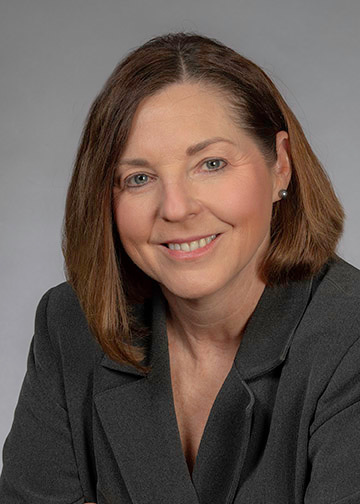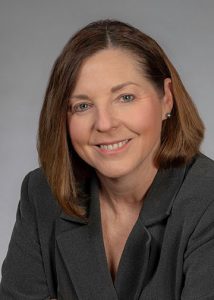
Plastics industry profile: Nova’s Debra van Holst
August 24, 2021
By
Canadian Plastics


Photo Credit: Nova Chemicals Corp.
Charles Dicken’s famous line about the French Revolution being the best of times and the worst of times can sum up aspects of the plastics sector these days. On the one hand, the COVID-19 pandemic has wreaked havoc with material availability and pricing; on the other hand (and unrelated), women in the industry are having an impact like never before.
A case in point is Calgary-based Nova Chemicals Corp., which has long been ahead of the curve when it comes to promoting well-qualified women to leadership positions. Sarah Marshall is one. A second is Debra van Holst, the company’s global director, logistics and customer experience.
GOING NOVA
A graduate from the University of Western Ontario with a degree in mechanical engineering, van Holst began her career at DuPont, where she held positions in advanced manufacturing, project management, and supply chain including leading the customer service organization; and then joined Nova in 1994, when it acquired DuPont’s polyethylene business. “While at Nova, I expanded my experience in olefins and polyolefins to include marketing, commercial management, investor relations, new business and product development, quality and supply assurance, business operations, logistics, and business leadership, and this led me to my current role,” she said.
Van Holst has achieved a lot in her career to date – leading business transformations, starting up new businesses, organizational restructuring, major capital projects and acquisitions – but considers her greatest business achievement to be the successes of the individuals working on her team. “I believe the best value a leader can add is to inspire, motivate, guide and coach others to be the very best they can be,” she said.
LESSONS ALONG THE WAY
And being the best you can be takes more than just effort – resource planning is also crucial. Which van Holst says she learned the hard way. “Once, I was leading the implementation of a major IT project, during which time I also took on a brand-new role in a very different part of the business for me,” she said. “I had the opportunity to turn the project leadership over to someone else, but I wanted to see it through completion, so I chose to do both. Despite working an enormous number of hours, I felt like I wasn’t delivering the quality of work I expected from myself in either role. I knew I needed help but since executing both roles in parallel was the path I chose; I was embarrassed to ask for it. I pressed on until the project was done. Unfortunately, I was too – I found myself completely burned out.” The lesson being? “To deliver the best results, you need to understand your own capacity and that of your teams,” she said. “When capacity is reaching its limit, take time to course correct, supplement or augment resources, or simply ask for help – engaging others brings the benefit of diversity of thought and perspective.”
A second lesson learned is to stay on the offense. “In sports, the best defense is a good offense, and the same is true in business,” van Holst said. “Offense is proactive; it drives resilience, allowing you to mitigate risks and reduce the impact of challenging situation when they do happen; it puts you in the driver’s seat, so you set the speed, the pace and the destination; and best of all, it creates a positive mindset – you’re striving to succeed rather than just trying not to lose.”
GETTING BETTER
Surveying the current level of diversity and equality across the plastics industry, van Holst sees a much better situation than existed just a few years ago. “We’re doing a lot of positive things to make the plastics industry an attractive place for women to work, including mentoring, development and emerging leader programs to provide guidance, coaching and a safe space to learn,” she says. “Senior women are purposefully acting as great role models.” One way to keep this trend going, she says, is to highlight the range of job roles available in plastics. “This industry isn’t just about chemistry – there are so many exciting career paths to follow,” she said. “Logistics and customer experience, for example, are exciting and dynamic roles at the centre of the supply chain action, and provide a wonderful blend of internal and external engagement and collaboration.”
When it comes to bringing more women – and men – into the plastics sector, the challenge is in overcoming the negatives that have attached to the industry. “Women and men want to work for a company that’s growing and making a positive contribution to the world and they want to see themselves growing right along with it,” she said. “Plastics provide such great value and have changed the world in so many positive ways, yet the public sentiment and media focus has people questioning the longevity of our industry. We have an opportunity with our climate care and sustainability efforts to reemphasize the value of plastics and as we pivot into new business models show the opportunities for growth.”
When asked for her advice for young women starting out today in the plastics/chemical industry, van Holst begins just two words: “Jump in!”
“Women tend to wait until they can check off all the boxes of what’s required for a role before taking on a new challenge,” she continued. “Don’t be afraid to take risks. If you think you can, you can.”
The post Plastics industry profile: Nova’s Debra van Holst appeared first on Canadian Plastics.


